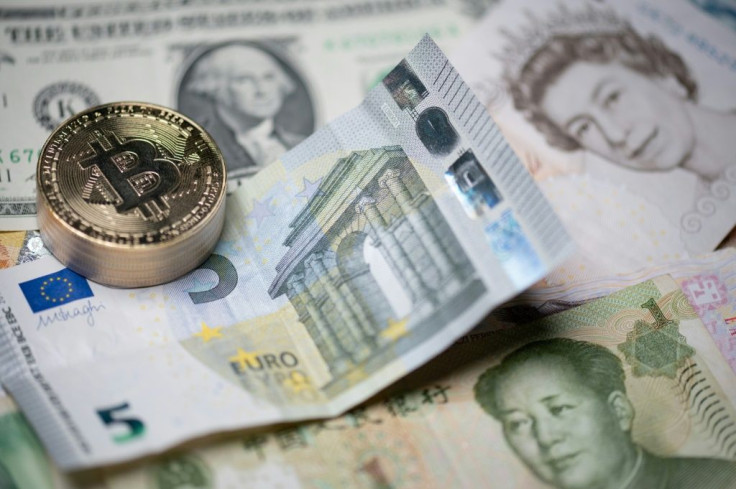Bitcoin's Biggest Threat To The Dollar -- Replace It As The World's Reserve Currency

Of all the threats bitcoin, the internet's digital currency poses for the mighty dollar, one stands out: replace it as the world's reserve currency.
That could be a big win for the digital currency, but it will have catastrophic consequences for the U.S.
First, it will undermine the federal government's monopoly of earning seigniorage income -- the acquisition of commodities and assets by printing money. Second, it will diminish the country's ability to live beyond its means by deficit spending, financed by issuing bonds purchased by individual and institutional investors worldwide.
But how likely is it for this scenario to materialize?
Author and retirement planner Craig Kirsner sees it as a possibility by pointing to the growing acceptance of the digital currency among institutional investors and corporations.
"Some of the most important trends in the crypto industry in 2021 has been the acceptance by large institutions of bitcoin as an asset class," said Kirsner. "Bitcoin has also been embraced by more corporations, such as Square, and also has attracted new institutional money. CME offers bitcoin futures. You can also invest in bitcoin on the publicly traded markets by buying GBTC, which is the Grayscale Bitcoin Trust."
Shone Anstey, the chief executive officer at LQwD Fintech Corp., is on the same page, arguing that the Fed will eventually be forced to buy bitcoin to support the dollar.
"Bitcoin is the internet's native digital currency, and what we are witnessing is a continuation of the social disruption unleashed by the internet over the last 25 years," Anstey said. "As this technology cycle unfolds, at some point, the U.S. Federal Reserve will be forced to buy bitcoin to back the USD for its treasury for the digital age. Its future CBDC will run across the bitcoins open payment rails, specifically the Lightning network."
That’s an ambitious prediction.
Economist and mathematician Michael Edesess doesn't see bitcoin standing any chances of replacing the mighty dollar because of the lack of scalability.
"When a large number of transactions are requested in bitcoin, the block size on the blockchain is exceeded, and miners have to put transactions off until later blocks -- much later if there are too many transactions," Edesess said. "So the time to settlement can be long. And to incentivize miners to include a transaction in the next block, a transactor has to include a larger and larger fee, eventually larger than a transaction would cost using a Visa card or Paypal or any other transaction medium."
Simply put, bitcoin transactions can be too costly to scale up, without help from Visa, Paypal, and other conventional payment networks.
"Some bitcoin enthusiasts say the problem can be solved by the 'lightning network,' which processes most of the routine transactions with frequent transaction partners off-blockchain, but I am unconvinced," Edesess said.
Still, he doesn't rule out the possibility of the technologies behind the cryptocurrencies producing real alternatives to the dollar and the other major national currencies, as has been the case with China's digital currency.
"Nevertheless, it is still not impossible that a decentralized, trustless currency with a design different from that of bitcoin could replace fiat (nationally issued) currencies, but I think it is very unlikely," Edesses said.
National governments have the motive, the power, and the means to make sure it will never happen, crushing the digital currency before it crushes them.
Meanwhile, bitcoin's true believers may find out that the promise of emerging technology and an emerging currency isn't necessarily the same thing.





















